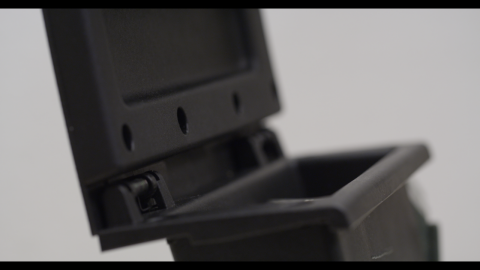Here’s what Ford and tequila have in common
You’re probably wondering why Ford Motor Company is appearing in the same headline as “tequila.” Well, it turns out the manufacturer is teaming up with Jose Cuervo to explore the use of the company’s agave plant byproduct to develop more sustainable bioplastics for future vehicles.

Ford and Jose Cuervo are testing the new bioplastic in vehicles’ interior and exterior components like wiring harnesses, HVAC units and storage bins. So far, the two companies have found that the material is durable and visually appealing to work with. By developing a sustainable composite material, Ford could reduce vehicle weight and lower energy consumption.
“At Ford, we aim to reduce our impact on the environment,” said Debbie Mielewski, Ford senior technical leader, sustainability research department. “As a leader in the sustainability space, we are developing new technologies to efficiently employ discarded materials and fibers, while potentially reducing the use of petrochemicals and light-weighting our vehicles for desired fuel economy.”
The agave plant takes a minimum of seven-years to grow. Once it’s harvested, the heart of the plant is roasted and then ground in order to extract juices for distillation. Jose Cuervo uses a portion of the remaining agave fibers as compost for its farms, but now, as part of a broader sustainability plan, the tequila maker wantes to develop a new way to use its remnant fibers.
“Jose Cuervo is proud to be working with Ford to further develop our agave sustainability plan,” said Sonia Espinola, director of heritage for Cuervo Foundation and master tequilera. “As the world’s No. 1-selling tequila, we could never have imagined the hundreds of agave plants we were cultivating as a small family business would eventually multiply to millions. This collaboration brings two great companies together to develop innovative, earth-conscious materials.”
The collaboration is the latest example of Ford’s approach to product and environmental stewardship through the use of biomaterials. Ford began researching the use of sustainable materials in its vehicles in 2000 and currently uses eight sustainable-based materials in its vehicles including soy foam, castor oil, wheat straw, kenaf fiber, cellulose, wood, coconut fiber and rice hulls.
“There are about 400 pounds of plastic on a typical car,” said Mielewski. “Our job is to find the right place for a green composite like this to help our impact on the planet. It is work that I’m really proud of, and it could have broad impact across numerous industries.”


Comments are closed, but trackbacks and pingbacks are open.